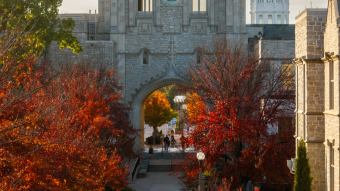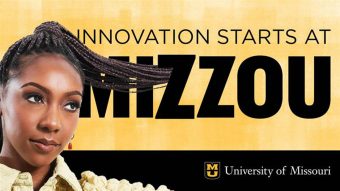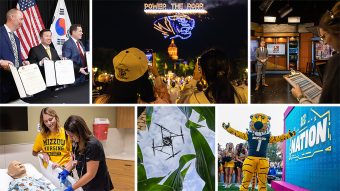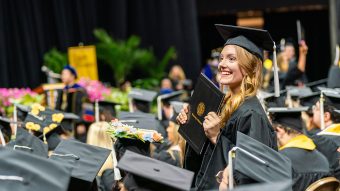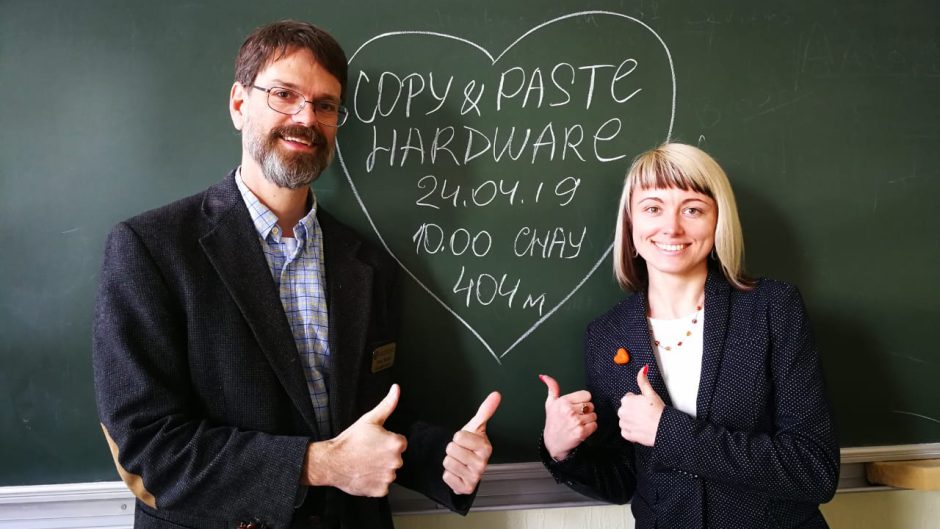
Aug. 28, 2023
Contact: Deidra Ashley, ashleyde@missouri.edu
If there’s one word to describe Oksana Zamora, it’s tenacious.
The associate professor of the Department of International Economic Relations at Sumy State University in Ukraine has spent her career educating others and jumpstarting academic collaborations and international projects.
In 2018, Zamora came to the University of Missouri as an international scholar through the USDA Faculty Exchange Program. While at Mizzou, she worked with a number of units — including FAPRI and the Robert J. Trulaske, Sr. College of Business — and formed lasting connections with faculty.
Zamora returned to her home country in 2018, but by 2022, she felt a shift coming — one that would put her tenacity to the test.
“The more I analyzed the international investigations and the data, the more I became sure the Russian invasion was inevitable,” Zamora said. “It was difficult making the decision to flee, especially when many of my family members, friends or colleagues were not mentally ready to do it — or simply didn’t believe that the war is here.”
On February 24, 2022, at 8.00, Zamora packed up her elderly parents and four pets and headed South-West toward Uzhgorod — a normally 15-hour drive that instead took two-plus sleepless days due to gas shortages and vehicle lines.
Two years on, and as the Russian aggression continues in Ukraine, Zamora and her family continue to try to settle in the Czech Republic. Despite the harrowing experience, and knowing they’ll have to leave once the war is over, Zamora has maintained an unwavering commitment to higher education and youth work — and a connection to Mizzou.
In winter of 2022, Zamora helped recruit a pair of her favorite MU faculty members — J. Scott Christianson, associate teaching professor in the Trulaske College of Business; and William Meyers, professor emeritus in the College of Agriculture, Food and Natural Resources — to contribute to Ukraine Global Faculty (UGF). At that moment the world and many Ukrainians thought that the life came to an end: no studies, no work can go on, suddenly students popped up on online classes. Statistics showed that people continued to teach and learn online even on the occupied territories because education was a hope for the terrified brain that the life would still come back to normal. To support this, established in 2022 after the Russian invasion, the global organization strives to deliver world-class online education opportunities to thousands of Ukrainian students impacted by the war.
“Scott and Willi are both professionals of the highest level — in their respective fields and are brilliant as teachers,” Zamora said. “The way they share their knowledge with students is engaging, easygoing and motivating, and I knew UGF would benefit from their contribution a lot. I am grateful they have kindly agreed to this request.”
Global influence
Through UGF, Ukrainian students participate in a series of Zoom presentations given by scholars from around the world. A multichannel interface supports simultaneous translation to Ukrainian, making the information more accessible and interactive.
Christianson, who also directs MU’s Center for Entrepreneurship and Innovation in the Trulaske College of Business, is a perfect fit for such an ambitious international endeavor. He blends his expertise in technology, information systems, project management and education to help students think critically about emerging technologies — a perfect topic given UGF’s goals and online presentation format.
“Being part of a global community of scholars, we have to help these universities as they’re struggling,” said Christianson, who visited Ukraine in 2019. “I’m hopeful that this will strengthen our ties, let them know that we’re still here and that we’re not forgetting about them.”
Meyers’ lecture on global food security and nutrition crisis and Ukraine impacts was also popular — to the tune of a then UGF-record 400 participants who joined the live session. A renowned international expert on agricultural economics and former codirector of MU’s Food and Agricultural Policy Research Institute, Meyers had much to impart to students from Ukraine — a massive farming region.
“The state of world food insecurity had been declining even before the war started, and Ukraine ships a lot of it because of its location near the Mediterranean and North Africa,” said Meyers, who in 2005 co-wrote a book about Ukraine agriculture and rural development policy. “As an educator, I found the UGF experience to be rewarding because the audience’s questions originate from unique perspectives.”
Staying vigilant
As war rages on, Zamora’s outlook in the Czech Republic remains uncertain. But her commitment to educating her people — through partnerships between UGF and institutions such as Mizzou — stands strong.
“The past century has demonstrated how important it is to integrate, cooperate and support humankind’s development,” Zamora said. “Life is unpredictable, and the help I received in the Czech Republic and from my American friends and colleagues proves that a positive attitude and helping when you can are our human, moral, obligations.
“You never know what might happen tomorrow to you or your family. Maybe you wake up and become the one who desperately needs help.”
